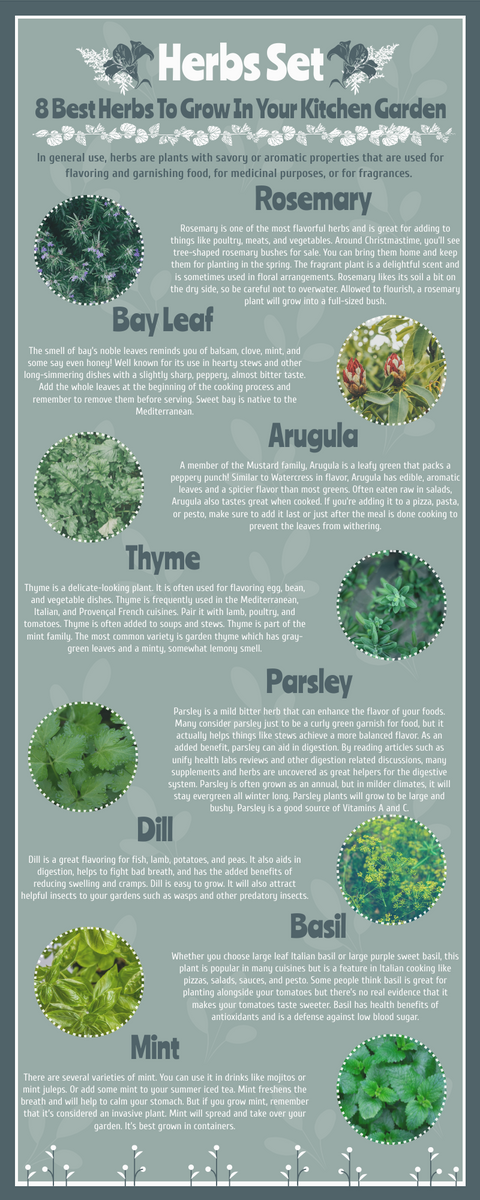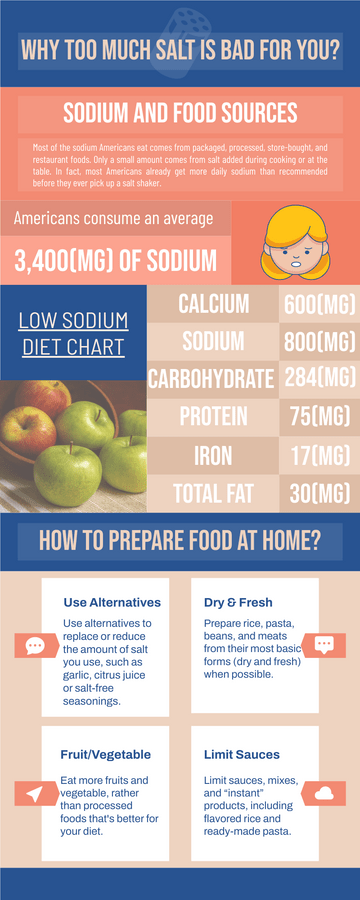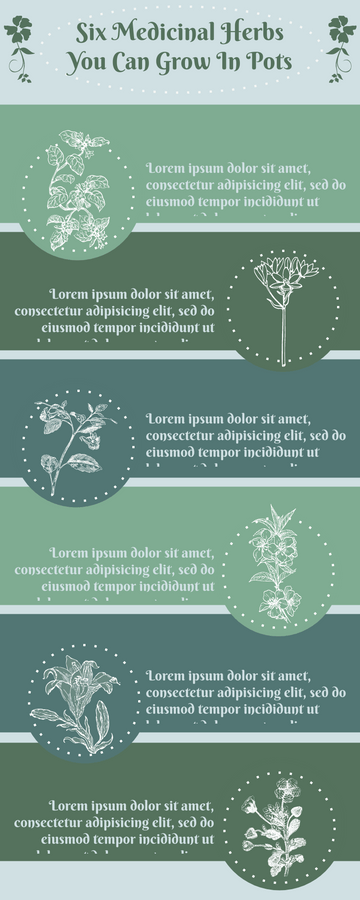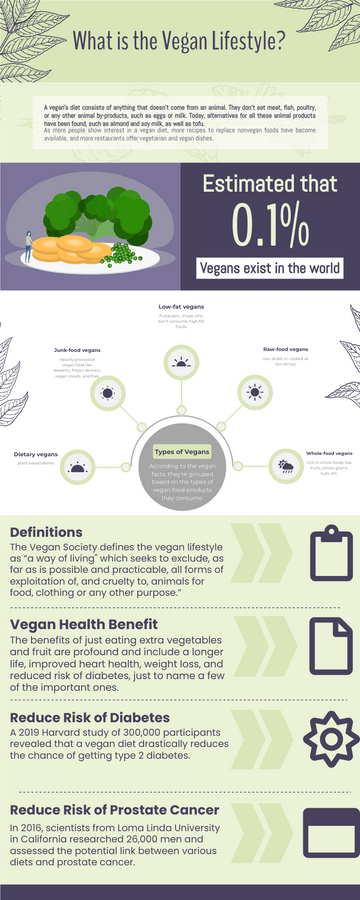Herbs Set
8 Best Herbs To Grow In Your Kitchen Garden
In general use, herbs are plants with savory or aromatic properties that are used for flavoring and garnishing food, for medicinal purposes, or for fragrances.
Rosemary
Rosemary is one of the most flavorful herbs and is great for adding to things like poultry, meats, and vegetables. Around Christmastime, you’ll see tree-shaped rosemary bushes for sale. You can bring them home and keep them for planting in the spring. The fragrant plant is a delightful scent and is sometimes used in floral arrangements. Rosemary likes its soil a bit on the dry side, so be careful not to overwater. Allowed to flourish, a rosemary plant will grow into a full-sized bush.
Bay Leaf
The smell of bay’s noble leaves reminds you of balsam, clove, mint, and some say even honey! Well known for its use in hearty stews and other long-simmering dishes with a slightly sharp, peppery, almost bitter taste. Add the whole leaves at the beginning of the cooking process and remember to remove them before serving. Sweet bay is native to the Mediterranean.
Arugula
A member of the Mustard family, Arugula is a leafy green that packs a peppery punch! Similar to Watercress in flavor, Arugula has edible, aromatic leaves and a spicier flavor than most greens. Often eaten raw in salads, Arugula also tastes great when cooked. If you’re adding it to a pizza, pasta, or pesto, make sure to add it last or just after the meal is done cooking to prevent the leaves from withering.
Thyme
Thyme is a delicate-looking plant. It is often used for flavoring egg, bean, and vegetable dishes. Thyme is frequently used in the Mediterranean, Italian, and Provençal French cuisines. Pair it with lamb, poultry, and tomatoes. Thyme is often added to soups and stews. Thyme is part of the mint family. The most common variety is garden thyme which has gray-green leaves and a minty, somewhat lemony smell.
Parsley
Parsley is a mild bitter herb that can enhance the flavor of your foods. Many consider parsley just to be a curly green garnish for food, but it actually helps things like stews achieve a more balanced flavor. As an added benefit, parsley can aid in digestion. By reading articles such as unify health labs reviews and other digestion related discussions, many supplements and herbs are uncovered as great helpers for the digestive system. Parsley is often grown as an annual, but in milder climates, it will stay evergreen all winter long. Parsley plants will grow to be large and bushy. Parsley is a good source of Vitamins A and C.
Dill
Dill is a great flavoring for fish, lamb, potatoes, and peas. It also aids in digestion, helps to fight bad breath, and has the added benefits of reducing swelling and cramps. Dill is easy to grow. It will also attract helpful insects to your gardens such as wasps and other predatory insects.
Basil
Whether you choose large leaf Italian basil or large purple sweet basil, this plant is popular in many cuisines but is a feature in Italian cooking like pizzas, salads, sauces, and pesto. Some people think basil is great for planting alongside your tomatoes but there’s no real evidence that it makes your tomatoes taste sweeter. Basil has health benefits of antioxidants and is a defense against low blood sugar.
Mint
There are several varieties of mint. You can use it in drinks like mojitos or mint juleps. Or add some mint to your summer iced tea. Mint freshens the breath and will help to calm your stomach. But if you grow mint, remember that it’s considered an invasive plant. Mint will spread and take over your garden. It’s best grown in containers.





























































